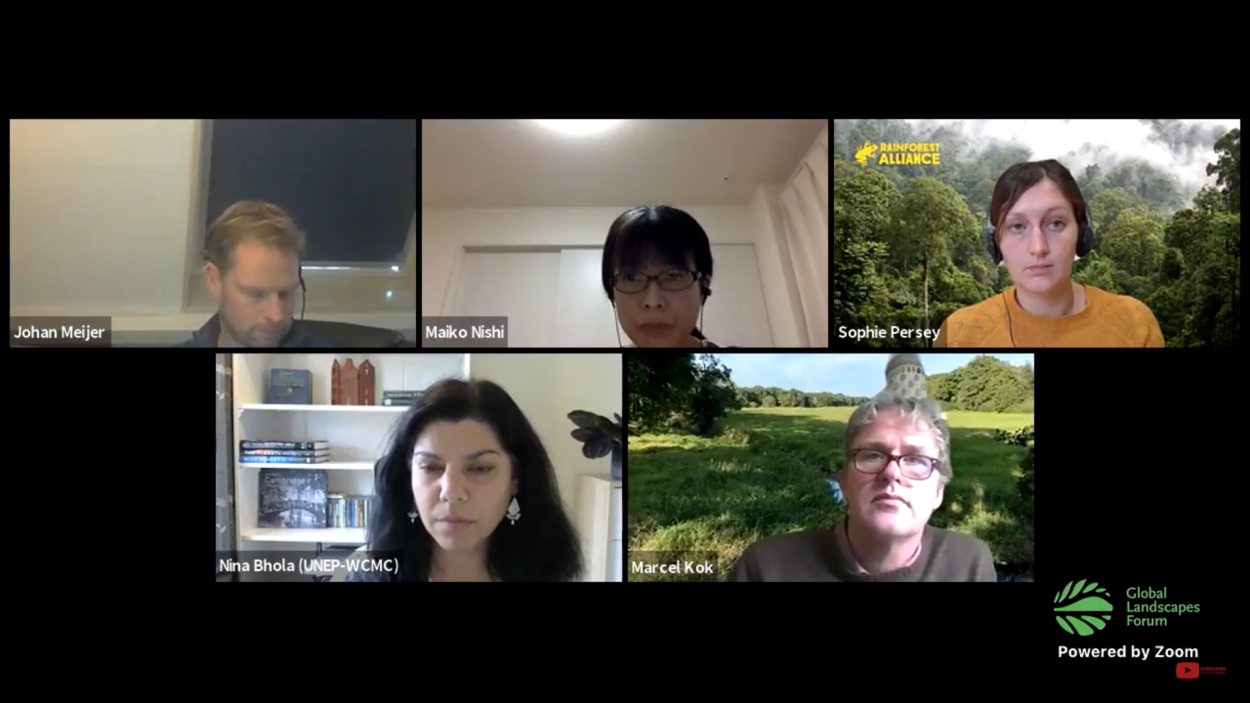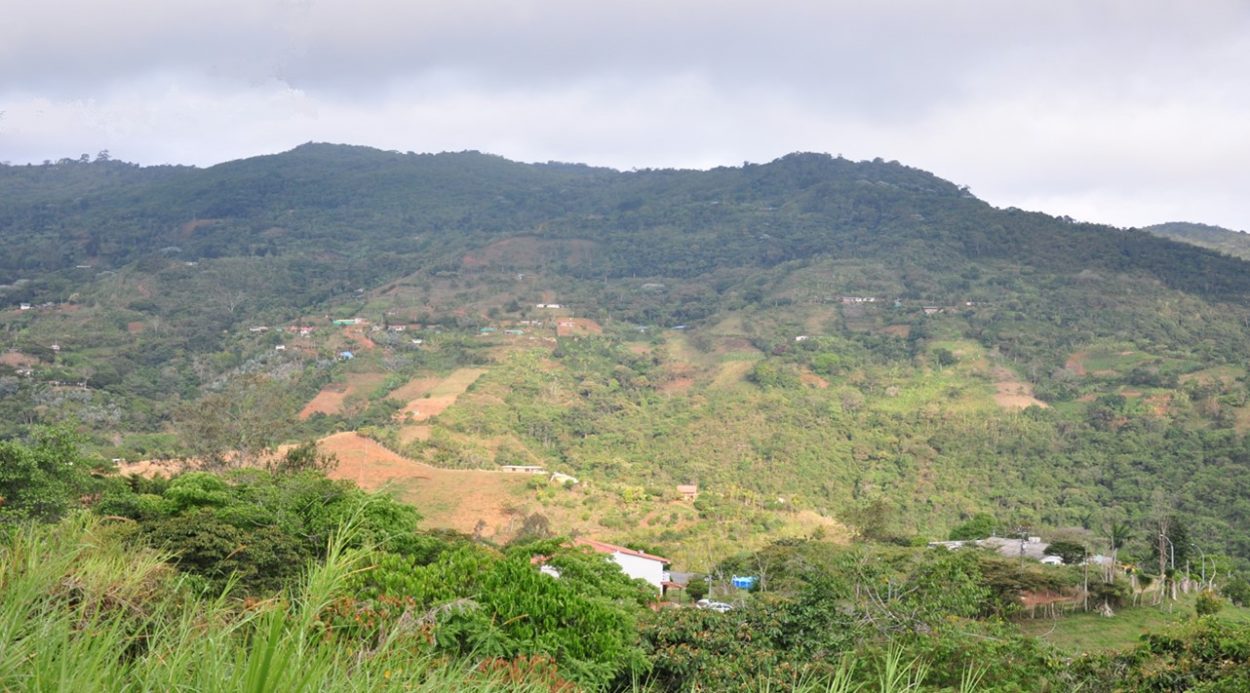IPSI Newsletter

TOPIPSI NewsletterIPSI Newsletter, November 2020
IPSI Newsletter, November 2020
2020.11.24
Dear IPSI members and friends,
Greetings from the IPSI Secretariat in Tokyo, Japan. We are still working from home here at the Secretariat, and we hope all of you are staying healthy and safe whatever the current situation in your country. IPSI and its members continue to stay active in a wide variety of projects and activities related to landscape and seascape approaches towards “societies in harmony with nature”, even during the COVID-19 pandemic.
This month’s newsletter contains reports from two recent events, a thematic track session on the Satoyama Initiative during ISAP 2020, and a Global Landscapes Forum session on landscape approaches, both co-organized by the IPSI Secretariat with other partners. We are happy to share the recent Call for Submissions for the seventh volume of the “Satoyama Initiative Thematic Review” publication series. We also have a short write-up of a recent IPSI case study from CORFOPAL in Colombia.
As always, please feel free to contact us to submit any new case studies or other information about your activities, or if you have any questions or comments.
IPSI Secretariat

ISAP 2020 Thematic Track Session: “The Satoyama Initiative, transformative change, and societies in harmony with nature”
An online session on “The Satoyama Initiative, transformative change, and societies in harmony with nature” was held on 12 November 2020 as a thematic track session of the International Forum for Sustainable Asia and the Pacific (ISAP) 2020. Presentations and panel discussions in the session addressed how the concept of SEPLS, as promoted under the Satoyama Initiative, can contribute to transformative change towards the vision of “societies in harmony with nature”, particularly considering impending new realities in the post-COVID-19 era. This event was co-organized by the IPSI Secretariat at the United Nations University Institute for Advanced Studies (UNU-IAS) and the Institute for Global Environmental Strategies (IGES), with the support of the Ministry of the Environment, Japan.
More details, including a full video stream of the event, can be found on the ISAP 2020 website here.

Global Landscapes Forum Session: "Seizing the landscape opportunity to catalyse transformative biodiversity governance"
A session titled “Seizing the landscape opportunity to catalyse transformative biodiversity governance” and including SEPLS perspectives from the Satoyama Initiative was held on 29 October 2020 as part of the Global Landscapes Forum (GLF) Biodiversity Digital Conference. The session highlighted the role of landscape approaches and arrangements undertaken by non-state actors to support the new CBD Post-2020 Global Biodiversity Framework (GBF), how policies may support it and the potential for area-based non-state actor GBF commitments and verification. The event was organized by the PBL Netherlands Environmental Assessment Agency along with partners including UNU-IAS, host of the IPSI Secretariat. The session was moderated by the IPSI Secretariat’s Dr. Suneetha Subramanian, and Dr. Maiko Nishi gave a presentation on the Satoyama Initiative, IPSI and the IPSI collaborative activity to develop a manual for incorporation of landscape approaches into CBD Parties’ National Biodiversity Strategies and Action Plans (NBSAPs), while other partners and friends of IPSI took active part in the presentations and active discussion.
For more information, please see the Global Landscapes Forum website here. Video of the event can be viewed here.
Call for Papers: “Nexus among biodiversity, health, and sustainable development in managing socio-ecological production landscapes and seascapes (SEPLS)” (Satoyama Initiative Thematic Review Vol. 7)
The United Nations University Institute for the Advanced Study of Sustainability (UNU-IAS) and the Institute for Global Environmental Strategies (IGES) recently announced a call for papers for the seventh volume of the series “Satoyama Initiative Thematic Review”. The sixth volume will feature the theme “Nexus among biodiversity, health, and sustainable development in managing socio-ecological production landscapes and seascapes (SEPLS)”. Authors from IPSI member organizations who have case studies relevant to this theme are highly encouraged to submit a manuscript following the guidance provided in this call for submissions. The initial deadline for abstract submissions is 1 December 2020.
Please see the full call for submissions on the IPSI website here.

Recent Case Study: Corporación Ambiental y Forestal del Pacífico (CORFOPAL)
The IPSI Secretariat is proud this month to share one of our recent case studies from Corporación Ambiental y Forestal del Pacífico (CORFOPAL) in Colombia. The case study is titled “The San Antonio Forest Key Biodiversity Area Governance Scheme: collective construction based on differences”, and was also included as a chapter in the Satoyama Initiative Thematic Review vol. 5.
According to the case study, The San Antonio Forest (SAF) is a key biodiversity area (KBA) located in Valle del Cauca in the Colombian Andes, and one of the regions most threatened by human intervention, with less than 30 percent of its natural ecosystems conserved. This productive and biodiverse landscape is a dynamic mosaic of ecosystems and land uses, including villages, crops, forests, pastures and private properties containing luxury country houses and small farms. Even though this area connects six protected areas, the laws that regulate the use and conservation of these areas are not respected. As a result, the agricultural and livestock frontiers have extended over the past few years, causing habitat loss, fragmentation and overpopulation, which in turn have increased the pollution of water sources and threatened biodiversity. However, these threats have not been properly quantified. CORFOPAL, with the support of other organizations working in the area, used the Toolkit for the Indicators of Resilience in SEPLS to obtain information about the SEPLS, the communities and local stakeholders, and then developed a governance model called the “SAF-KBA Governance Scheme”. This participatory scheme seeks to build a strategic and inclusive vision among the stakeholders, taking into account their different beliefs, attitudes, roles and responsibilities towards nature in order to facilitate inclusive and consensual decisions in the implementation of conservation strategies.
For the full case study, please see the IPSI website here.
Contact
Please be sure to let the Secretariat know if there are any changes in your e-mail address or contact information.
Secretariat of the International Partnership for the Satoyama Initiative
United Nations University Institute for the Advanced Study of Sustainability (UNU-IAS)
5–53–70 Jingumae
Shibuya-ku, Tokyo 150-8925
Japan
Tel: +81 3-5467-1212
Fax: +81 3-3499-2828
Email: isi@unu.edu
If you have been forwarded this newsletter and would like to SUBSCRIBE, you can do so on the IPSI website here.


